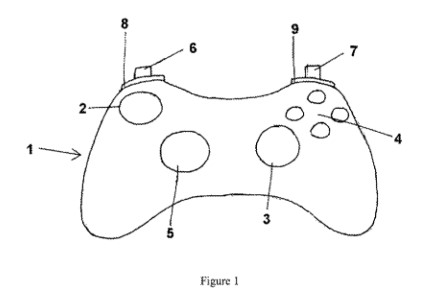by Dennis Crouch
Ironburg Inventions Ltd. v. Valve Corp., — F.4th —, 21-2296 (Fed. Cir. Apr. 3, 2023)
The recent decision in Ironburg Inventions Ltd. v. Valve Corp. has significant implications for post-IPR estoppel under 35 U.S.C. § 315(e)(2). In this case, the Federal Circuit adopted a “skilled searcher” standard to determine whether grounds not raised in the original IPR “reasonably” could have been raised at the time. The court also addressed the burden of proof in estoppel cases, with the Federal Circuit holding that it lies with the party seeking the estoppel — a ruling that aligns with traditional practice and the best reading of the statute. These standards and procedures are important because they provide clarity on the scope of estoppel and help stabilize the law, particularly given diverging district court rulings on these issues. One interesting aspect of Ironburg is the split 2-1 decision on indefiniteness, which I’ll address in a separate post.
Before delving into the case, it is also worth noting that the issue of estoppel and its nuances are currently pending before the U.S. Supreme Court in Apple v. CalTech. In Apple, the Federal Circuit broadly applied the estoppel doctrine, and the Supreme Court is now considering whether to grant certiorari.
Lack of Knowledge and a Skilled Searcher Test: After being sued for infringement, Valve challenged Ironburg’s game controller patent via inter partes review (IPR). That administrative action ended with a final written decision favoring the patentee — i.e., Valve lost. Back in district court, Valve attempted to challenge the validity again – this time based upon non-petitioned grounds that it gleaned from a competitor’s IPR petition against the same Ironburg patent. The district court barred Valve’s defenses as estopped under § 315(e)(2) after concluding Valve “reasonably could have raised” those grounds in its original IPR. Valve argued that it had no knowledge of those references at the time of its IPR petition and therefore could not have included them as challenge grounds. However, both the district court and the Federal Circuit held that lack of knowledge is not a complete excuse. Rather, in cases where the IPR challenger lacks knowledge of the prior art the appropriate test for estoppel is what “a skilled searcher conducting a diligent search reasonably could have been expected to discover.”
Burden Shifting: One question on appeal is which party has the burden of proving that the ground reasonably could have been raised in the IPR. The district court (seemingly) placed the burden on the patent challenger to prove that it could not have reasonably raised the issue. In some ways, that burden makes sense because the IPR challenger is in the best position to understand and prove its level of knowledge (or lack thereof) at the time. On appeal, however, the Federal Circuit flipped that ruling — holding instead that the burden lies with the party seeking the estoppel to prove estoppel. In my view, this result better aligns with both tradition and the reading of the statute.
Digging a bit into the weeds: the district court’s holding basically concludes that Valve reasonably should have been able to find the references since the other IPR challenger found them. On appeal, the appellate court found some faulty logic — an inherent and unproven assumption made by the district court was that the other IPR challenger used only reasonable diligence to find the art. If, on the other hand, it took “extraordinary measures” to find the references and construct the challenge ground, then no estoppel should apply.
The patentee had won a $4 million judgment at the original trial, but on remand, the district court will need to reconsider its estoppel decision. If the result is no-estoppel, Valve will get a third chance at invalidating the patent. This case underscores the importance of conducting a diligent search to identify all potential grounds for invalidity and then putting the best grounds forward in the IPR petition.
